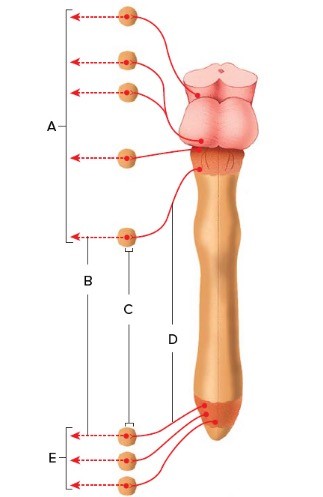 The figure illustrates the parasympathetic division. What does "D" represent?
The figure illustrates the parasympathetic division. What does "D" represent?
A. Cranial nerves
B. Pelvic splanchnic nerves
C. Postganglionic neurons
D. Preganglionic neurons
E. Terminal ganglia
Answer: D
You might also like to view...
The TMJ (temporomandibular joint) is composed of the convex upper condyle of the mandible, which fits into a concave surface of the temporal bone. The joint allows the mandible to swing uniaxially, producing the up-and-down motion of chewing. The TMJ is classified as a ________ joint.
Fill in the blank(s) with the appropriate word(s).
The output energy of all receptors is a type of ________ energy.
A. thermal B. nuclear C. mechanical D. chemical E. electrical
In the cerebral cortex, which cells process information on a local level?
A) Pyramidal B) Ependymal C) Stellate D) Purkinje
The neurotransmitter most likely produced when a person uses a drug that creates a sense of well-being is
A. glutamic acid. B. enkephalin. C. dopamine. D. substance Q.